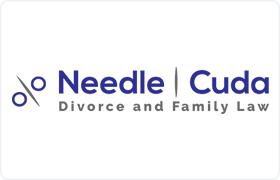Fairfield Divorce & Family Law Lawyer, Connecticut, page 5
Sponsored Law Firm
-
 x
x

Click For More Info:
-
Needle | Cuda: Divorce & Family Law
830 Post Road East Suite 301 Westport, CT 06880» view mapDivorce & Family Law Experienced. Savvy. Straightforward.
At Needle | Cuda, we know when you come to see us that you may be going through the most difficult time of your life. That is why we style ourselves a “high touch” law firm.
203-557-9500
Maria R. Altieri
Divorce & Family Law, Real Estate, Accident & Injury, Workers' Compensation
Status: In Good Standing Licensed: 40 Years
 Melissa Needle Westport, CT
Melissa Needle Westport, CT Practice AreasExpertise
Practice AreasExpertise
